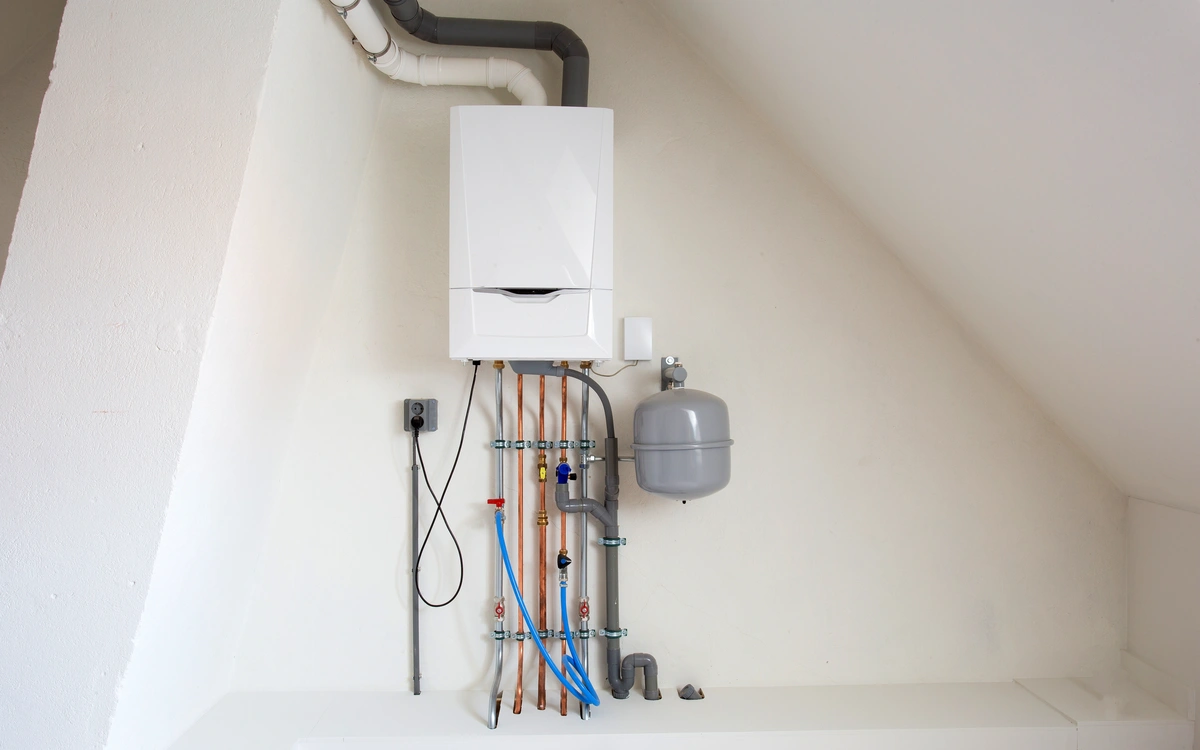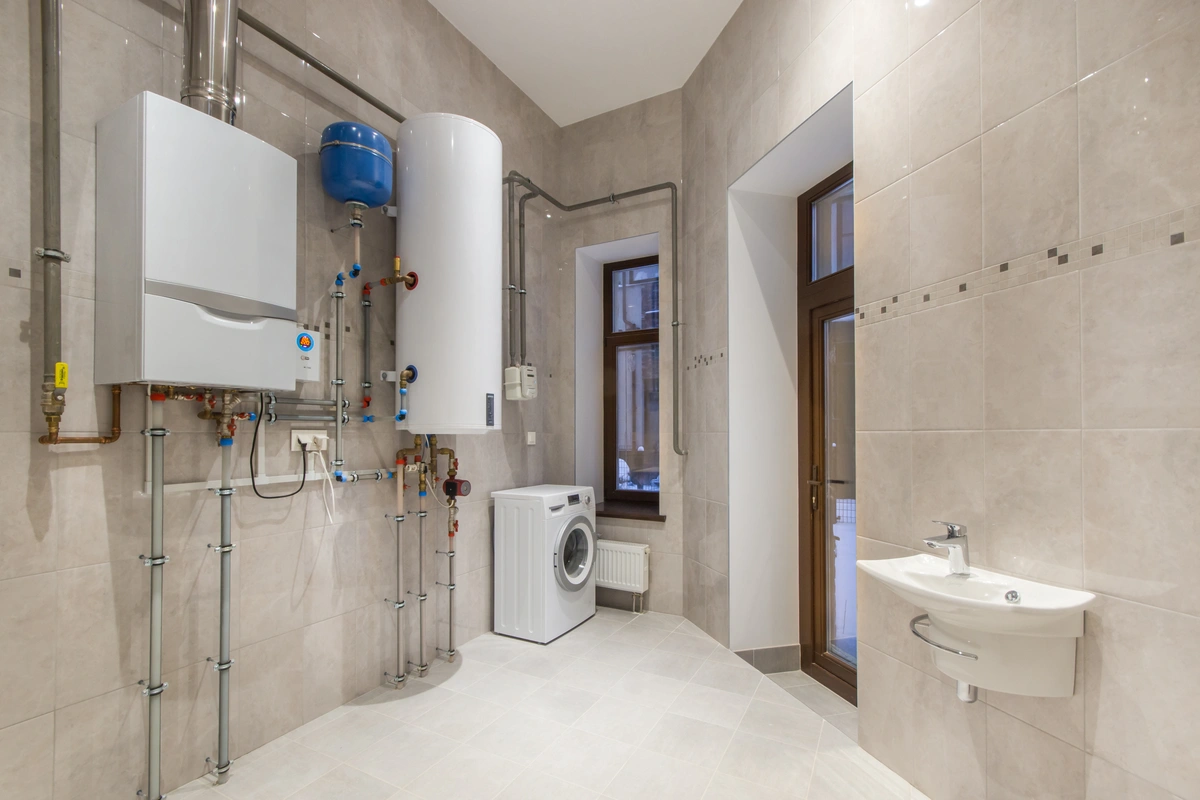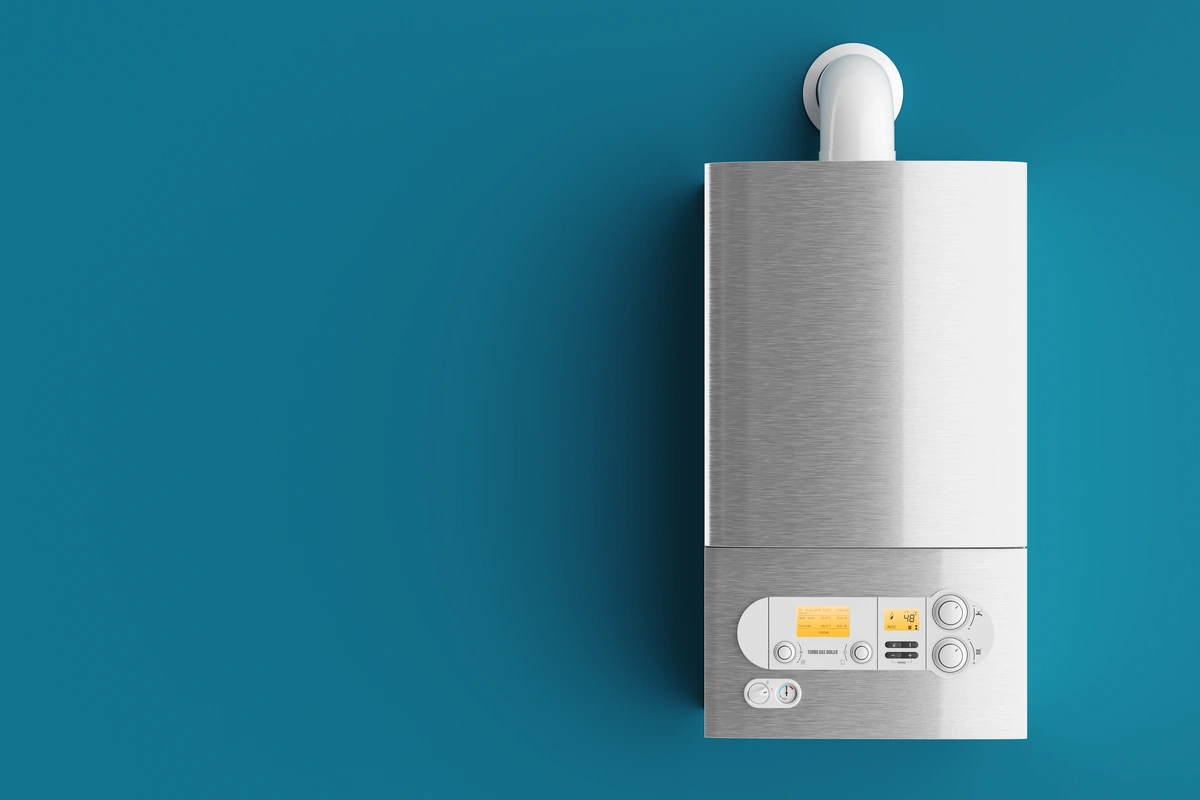Is it time for a new water heater? If so, you have quite a bit to consider — especially when it comes to the gas vs electric water heater debate.
Think of it this way: The fuel source is arguably more important than the type of water heater you choose. There are also several factors that come into play when making the decision, as they both come with their own sets of pros and cons.
Below we’ll uncover the differences between the two fuel sources, their advantages and disadvantages, and other things to consider before making a purchase decision.
The Gas vs Electric Water Heater Debate: Why Homeowners Should Care

Most homeowners don’t realize it, but deciding between a gas and electric water heater is a big deal. After all, your water heater is responsible for upwards of 18% of your energy bill, so efficiency should be at the top of your list when it comes to choosing a new heater unit.
Having said that, the two main things you want to think about when it comes to choosing gas vs electric water heaters are:
- Your household needs
- The cost of the unit itself
- Ongoing costs
Let’s take a closer look at gas vs electric water heaters.
Gas Water Heaters
As the name implies, a gas water heater is a tank that heats the water it draws in using a gas-fired burner. The burner is located at the bottom of the tank, and as the water is heated from the bottom, it rises upwards, where it can be drawn out by the discharge tube.
Gas Water Heater Pros and Cons
Now let’s take a look at the pros and cons of having a gas water heater.
✅The Pros:
- They heat water quickly
- They have lower operating (ongoing) costs compared to electric units
- They require less maintenance
- They’re energy-efficient
- They will continue to operate during power failure for up to several days
- Spare parts are easy to come by
❌The Cons:
- Not all homes have gas
- They tend to collect dirt and debris over time
- They’re less safe than electric models
- They have a shorter lifespan
- They sometimes require manual relighting
- They take up a lot of space
Electric Water Heaters
An electric water heater is a tank that heats water using high-voltage electric heating rods. These rods run vertically through the tank, so the water is heated beginning at the center of the tank and radiates outward.
Electric Water Heater Pros and Cons
Here’s an overview of the pros and cons of having an electric water heater:
✅The Pros:
- They’re safer compared to gas heaters
- They heat water efficiently
- They come in a wide range of sizes
- Their operation is cleaner
- They do not require a pilot light so relighting is never needed
- They’re easier to install as all homes already have electric service
❌The Cons:
- They’re associated with higher operating costs
- They tend to heat water slower compared to gas units
- They require longer recovery times in between heating
- Since they operate on electricity, they will not work during a power outage
Gas vs Electric Water Heaters: Factors to Consider

While the difference between the two types of fuel sources may seem black and white, choosing whether a gas or electric water heater is right for your home will come down to the following factors:
- The Installation process: While both gas and electric water heaters require permits and inspections, the installation process is different. This is because homes already have electricity but not all homes have gas — which means installing a gas water heater may require a costly plumbing upgrade.
- The size of the water heater: Electric water heaters come in a larger size range compared to gas water heaters. There are even micro-sized-point-of-origin (instant demand) electric water tanks. Generally speaking, electric water heater tanks can range from 40 gallons to 120 gallons, whereas gas water heater tanks range from 40 to 100 gallons.
- Initial purchase cost: Electric water heaters are less expensive initially compared to gas water heaters. Most electric water heaters range between $500 and $800 whereas gas water heaters can range from $600 to upwards of $800 — and that’s not including installation costs.
- Safety risks: Electric water heaters are considered to be safer than gas water heaters since they do not require a gas line, burner, or pilot light. Electric water heaters typically only require a 240-volt connection, whereas gas heaters require a gas line and an open flame to operate.
- Heating rate: Gas water heaters are known to have a quicker initial heating rate as well as faster recovery times. Electric water heaters spread the heat out along the height of the tank, and the heating rods can take a little while to heat up — that means longer wait times.
- Operational costs: Gas water heaters cost roughly 33% less to operate, whereas electric water heaters cost an average of $42 per month. Generally speaking, gas tends to cost less in most areas compared to electricity.
- Energy Efficiency: Electric water heaters may take a bit longer to heat the water, but they do so more efficiently compared to gas water heaters. This is because their heating rods are submerged in the water within the sealed tank, which results in very little heat loss. Gas water heaters burn hotter but are less efficient because their energy output gets wasted through the vent at the top of the tank that’s used to discharge toxic gasses.
- Lifespan: Electric water heaters will last slightly longer than their gas counterparts — usually by three to five years.
- Environmental impact: Both electric and gas water heaters have similar environmental impacts. However, the environmental impact of an electric water heater will vary depending on the power source. This means they can be incredibly eco-friendly if they’re attached to solar panels or a more efficient hydroelectric power plant.
Gas vs Electric Water Heaters: Which Should You Choose?
The type of water heater you choose should depend entirely on your household needs and budget. If you don’t have a gas line, the obvious choice is to go electric. However, if you have the luxury of choosing either, it’s a good idea to consult with a professional about your options.
You can give the plumbing experts at AJ Alberts Plumbing a call anytime with questions or concerns about water heaters. You can also visit our site to fill out a service request form.



